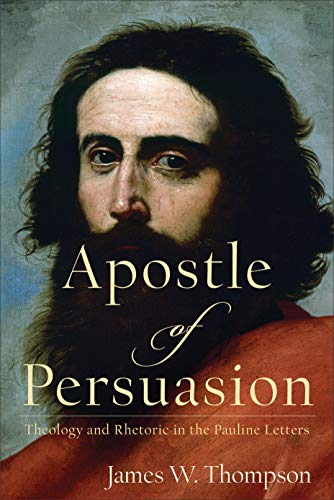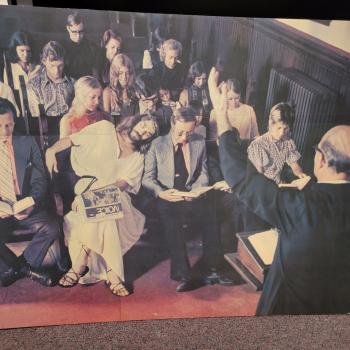Q. You make an excellent point when you stress that Paul’s arguments only work for a sub section of society, a Christian community that already largely shares his presuppositions about Christ, theology, the OT. This is certainly true. But it is equally true of all other ancient rhetoric. The judicial discourses of Cicero before the Senate and elsewhere only work in the context of the acceptance of Roman law, and Roman customs. One then wonders how exactly Paul’s preaching made converts if his rhetoric only really works ‘in house’? I do not agree with Litfin that Paul did not use rhetoric in his initial preaching because he believed the kerygma had inherent power quite apart from persuasion to accomplish the job. Surely, it’s not an either/or matter, but both/and. And the same applies to Paul’s speaking like a prophet revealing things while at the same time speaking like a rhetorician. For example, he uses syllogisms in 1 Cor. 15 to make his point, and elsewhere he says he is speaking according to human ways of persuading. Do you think there is some sort of major difference between Paul’s discourse as an evangelist and Paul’s discourse as represented in his letters? I doubt this, not least because Paul says things like ‘I am telling you now what I already told you when I was first with you….’ What do you think?
A. In response to your reference to Cicero, I think it is appropriate to say that all rhetoric is to an in-group of some kind. However, the in-group of Aristotle and Cicero was the Greek-Roman society, rather than a little sect that had its own separate view of the world and separate dialect of terms that took on a new meaning for them (e.g., election, ekklesia, dikaiosyne, etc.)..
The question of the relationship between Paul’s evangelic and pastoral preaching is an interesting one. I assume that the letters were sermons in absentia. We get some idea of the nature of his preaching to the converted, especially in 1 Thessalonians. Unfortunately, we do not have records of his preaching to the unconverted. Acts 17 gives Luke’s portrayal of Paul’s evangelistic preaching, this is filtered (if not invented) by Luke. All we know about Paul’s preaching to outsiders is what he tells us in 1 Corinthians. I assume we have some idea also in 1 Thess. 1:9-10 and other summaries of the kerygma. Where Paul preached to synagogues, he undoubtedly shared premises with his audience drawn from Scripture. Since all speaking is rhetorical, he undoubtedly employed rhetoric in all of his preaching. However, Litfin may be right that Paul’s preaching was more declaration of news that argumentation in which God’s power was present in the preaching.
















